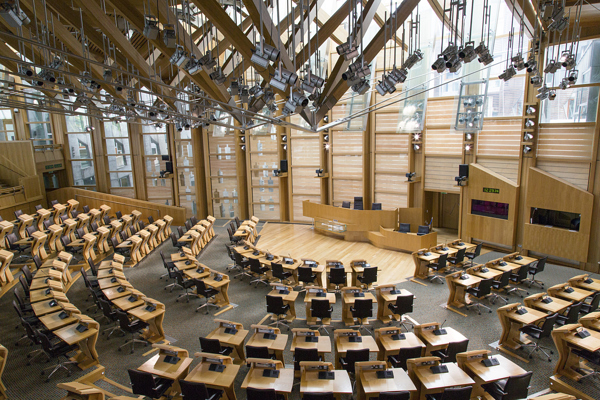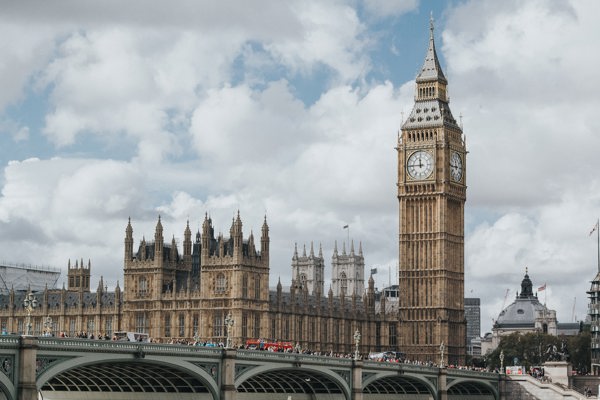At about the same time as the Supreme Court decision a Bill was making its way through the Scottish Parliament, the Gender Recognition Reform (Scotland) Bill. The Bill does a number of things but the main changes are a removal of a requirement for a medical diagnosis of gender dysphoria, a reduction in the age limit to 16 from 18 years and also a reduction in the time a person is required to live in their new gender from two years to six months (if the person is over 16) or three months (if over 18). It was contentious and there were very strong feelings on both sides of the argument. Proponents of the Bill said it was purely changing administrative arrangements relating to gender certificates to assist a group of people currently being discriminated against in Scotland. Opponents of the Bill said it was adversely impacting women's rights in Scotland and left them more at risk from abuse or from misuse of the new system. Views were strongly and sincerely held. However, the Bill was supported by the Scottish Government who had the votes to ensure that it passed all its parliamentary stages just before Christmas with support from members of the other parties at Holyrood. It had clear cross-party support and a large majority in the Scottish Parliament.
The New Year has, however, brought a novel legal and constitutional development; the use of an Order under section 35 of the Scotland Act 1998 to prevent a Bill of the Scottish Parliament being forwarded by the Presiding Officer to be given Royal Assent. In short, the Gender Recognition Reform (Scotland) Bill cannot become an Act of the Scottish Parliament or become law. This is the first time this power has been exercised by UK Ministers in the almost 25 years of the Scottish Parliament's life. The media have been referring to this as the "nuclear option". While that language is a bit melodramatic for lawyers, it is an option of last resort if the UK Government wish to legally stop a Bill.
Section 35 allows the Secretary of State, in this case the Secretary of State for Scotland, to make an Order where he believes a Bill contains provisions:
"(1)(b) which make modifications of the law as it applies to reserved matters and which the Secretary of State has reasonable grounds to believe would have an adverse effect on the operation of the law as it applies to reserved matters."
In those circumstances the Order prohibits the Presiding Officer from submitting the Bill for Royal Assent.
In this case, the Secretary of State has set out the reasons for his belief at Schedule 2 of the Order. These indicate that his concerns are around the adverse effect he believes the Bill will have on a number of reserved areas, most particularly on Equal Opportunities, the Equality Act 2010 and the Gender Recognition Act 2004. He also anticipates adverse effects on "fiscal, economic and monetary policy" and on "social security schemes" which are both reserved. The Scottish Government has indicated they are going to challenge the Order. This will presumably be by judicial review on the basis that no reasonable Secretary of State, having investigated this matter properly, could have reached the view the Order was appropriate. They will challenge the "reasonableness" of his "reasons" as set out in the Order, and will want to consider the evidence underpinning his "reasonable" beliefs.
Already, distinguished lawyers are reaching different views on whether the Order can be successfully challenged in the courts, or whether the Bill will require to go back to Parliament for amendment (which could be another first for the Scottish Parliament) to change offending provisions. Lord Hope, former Deputy President of the Supreme Court, having considered the reasons set out in the Order, has said he considers it will be very difficult to challenge the Order on the basis that the Secretary of State could not have reached a reasonable belief based on those reasons. His first thoughts are that the reasons are likely to be found to be sufficient. Lord Falconer, a former Labour Lord Chancellor and Secretary of State for Justice takes the contrary view and considers the basis for the Order could be successfully challenged. This is likely to be ultimately a question for the Supreme Court.
There has been, not surprisingly, a lot of emotive language used around the UK Government's use of the section 35 power. Politically that may raise difficult issues, particularly for those supporting the Bill in Holyrood and beyond. However, the section 35 power has been in the Scotland Act 1998 since the beginning and available to any UK government. The fact it is being used now, as opposed to a challenge under section 33, suggests this UK Government are not disputing the Scottish Parliament had the power to legislate for transgender arrangements in Scotland. However, the legal argument is going to be whether it can be justified legally that the Bill does adversely affect the reserved areas of law identified in the Order.
It is good to know constitutional lawyers have something new to discuss, disagree about and fill legal journals with our various views. It is also reassuring that the Scotland Act 1998 still has some surprises for us all, even after all this time.


